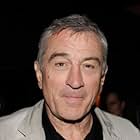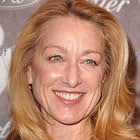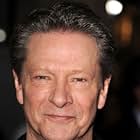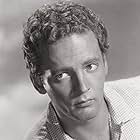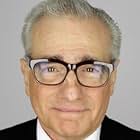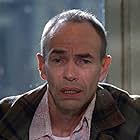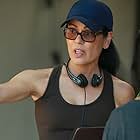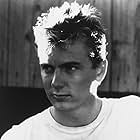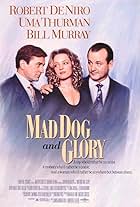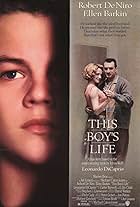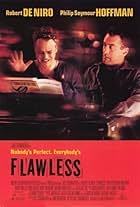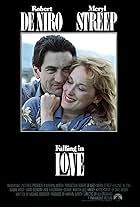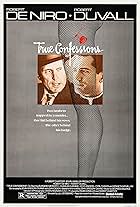IMDb RATING
6.6/10
9.8K
YOUR RATING
Returning to Hollywood 1951 after working in France, a movie director meets McCarthyism head-on.Returning to Hollywood 1951 after working in France, a movie director meets McCarthyism head-on.Returning to Hollywood 1951 after working in France, a movie director meets McCarthyism head-on.
- Awards
- 2 wins & 2 nominations
Roxann Dawson
- Felicia Barron
- (as Roxann Biggs)
- Director
- Writer
- All cast & crew
- Production, box office & more at IMDbPro
Storyline
Did you know
- TriviaMartin Scorsese portrays a fictional director called "Joe Lesser". This character is based on director Joseph Losey, who left Hollywood in the 1950s rather than face the HUAC examinations.
- GoofsThere is a Milwaukee Braves baseball pennant on the wall of Merrill's son's room. This film takes place in 1951 and 1952. The Braves didn't move to Milwaukee from Boston until 1953.
- Quotes
David Merrill: [to the Blacklist Committee] Fuck them!
- SoundtracksStraighten Up and Fly Right
Written by Nat 'King' Cole and Irving Mills
Performed by Nat 'King' Cole
Courtesy of Capitol Records, Inc.
By arrangement with CEMA Special Markets
Featured review
This is a fairly good movie. It provides a compelling dramatic struggle and captures the paranoia of an era. However, like many Hollywood movies, it strives more to create a dramatic story than an accurate one.
This movie was originally to be based on the life of blacklisted writer/director Abraham Polonsky (Force of Evil, Body and Soul). Polonsky was working in France at the time of the HUAC hearings and a friend called to tell him not to come back or he'd be called to testify. He deliberately came back for the express purpose of telling HUAC where they could stick it. This is a good story as an anecdote, but not a great story for a movie.
The one place in which this movie (and many other movies) softens the history is by making the protagonist politically neutral. It is certainly true that many people accused were not communists or had only attended a meeting out of curiosity, but this is not true for everybody. Many of these people were devout socialists. As Polonsky has said on occasion "During the Great Depression, anybody with a brain considered Communism. The Capitalist system was BROKE. Communism looked like a smart bet." While many of these people reconsidered as the nation returned to prosperity, a large number did not.
Most of the famous Hollywood Ten were still believers in socialism when they were blacklisted. There is no evidence that any of them were spies for the Soviet Union-- many of them had already learned that the USSR was not the socialist paradise they dreamed of-- but they did believe in the writings of Mark and Engels. It is also true that they placed socialist themes in their films. They created gangsters who only cared about money, families screwed over by greedy real estate brokers and poor saps who put it all in the stock market.
However, none of this was illegal. They had every right to believe in whatever politics they chose to. They had every right to create these films-- and their movies seemed to have a resonance with the audience. They're lives and careers were destroyed because they held political beliefs that some viewed as threatening.
I also want to point out that Elia Kazan was not the model for this film. Elia Kazan has been repeatedly condemned by Polonsky and others who were blacklisted. He chose to name names and to allow the HUAC to bully him. I don't condemn him for this like other people. As this movie shows, so much was on the line for people who HUAC sets their sights on. Kazan cracked. He failed to be a hero, when the time came. This doesn't mark him a coward, merely something less than a hero. "On the Waterfront," while not a direct explanation of his actions, is an excellent look at his state of mind around that time.
While yes, I have not spent much time reviewing this movie, I felt it necessary to set the record straight about history.
This movie was originally to be based on the life of blacklisted writer/director Abraham Polonsky (Force of Evil, Body and Soul). Polonsky was working in France at the time of the HUAC hearings and a friend called to tell him not to come back or he'd be called to testify. He deliberately came back for the express purpose of telling HUAC where they could stick it. This is a good story as an anecdote, but not a great story for a movie.
The one place in which this movie (and many other movies) softens the history is by making the protagonist politically neutral. It is certainly true that many people accused were not communists or had only attended a meeting out of curiosity, but this is not true for everybody. Many of these people were devout socialists. As Polonsky has said on occasion "During the Great Depression, anybody with a brain considered Communism. The Capitalist system was BROKE. Communism looked like a smart bet." While many of these people reconsidered as the nation returned to prosperity, a large number did not.
Most of the famous Hollywood Ten were still believers in socialism when they were blacklisted. There is no evidence that any of them were spies for the Soviet Union-- many of them had already learned that the USSR was not the socialist paradise they dreamed of-- but they did believe in the writings of Mark and Engels. It is also true that they placed socialist themes in their films. They created gangsters who only cared about money, families screwed over by greedy real estate brokers and poor saps who put it all in the stock market.
However, none of this was illegal. They had every right to believe in whatever politics they chose to. They had every right to create these films-- and their movies seemed to have a resonance with the audience. They're lives and careers were destroyed because they held political beliefs that some viewed as threatening.
I also want to point out that Elia Kazan was not the model for this film. Elia Kazan has been repeatedly condemned by Polonsky and others who were blacklisted. He chose to name names and to allow the HUAC to bully him. I don't condemn him for this like other people. As this movie shows, so much was on the line for people who HUAC sets their sights on. Kazan cracked. He failed to be a hero, when the time came. This doesn't mark him a coward, merely something less than a hero. "On the Waterfront," while not a direct explanation of his actions, is an excellent look at his state of mind around that time.
While yes, I have not spent much time reviewing this movie, I felt it necessary to set the record straight about history.
- How long is Guilty by Suspicion?Powered by Alexa
Details
- Release date
- Country of origin
- Language
- Also known as
- Fear no evil
- Filming locations
- Production companies
- See more company credits at IMDbPro
Box office
- Budget
- $13,000,000 (estimated)
- Gross US & Canada
- $9,480,198
- Opening weekend US & Canada
- $2,278,290
- Mar 17, 1991
- Gross worldwide
- $9,480,198
- Runtime1 hour 45 minutes
- Color
- Sound mix
- Aspect ratio
- 1.85 : 1
Contribute to this page
Suggest an edit or add missing content











